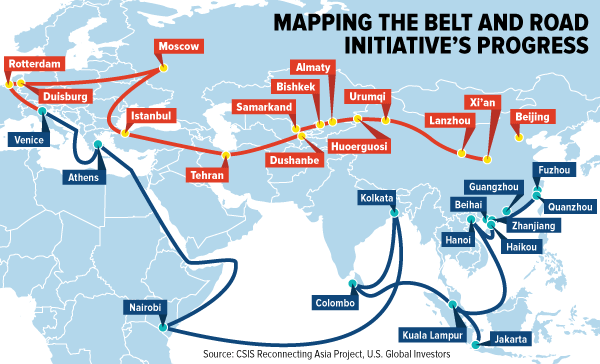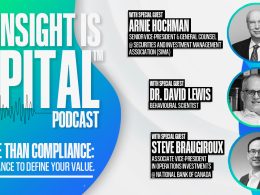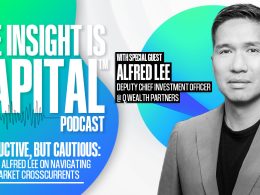How to Talk About Philanthropy with Your Clients
by Commonwealth Financial Network
 Aristotle said, “To give away money is an easy matter and in any man's power. But to decide to whom to give it and how large and when, and for what purpose and how, is neither in every man's power nor an easy matter.”
Aristotle said, “To give away money is an easy matter and in any man's power. But to decide to whom to give it and how large and when, and for what purpose and how, is neither in every man's power nor an easy matter.”
This sentiment may be especially true for many of your high-net-worth clients who would like to make a positive impact with their wealth. If so, you have the potential to provide some much-needed guidance—especially if they’re willing to incorporate the philanthropic conversation into their financial planning discussions.
Here, we’ll focus on how to talk about philanthropy with your clients, starting with the benefits of having this conversation.
Deepen your relationships. Although many advisors consider charitable giving tools as purely tax-savings vehicles, this is not how many clients see it. For them, charitable giving is a personal topic. In fact, a recent study by the U.S. Trust reported that 53 percent of the wealthy are motivated to give back by personal values and a desire to make an impact.
As such, introducing philanthropy in your financial planning discussions can provide an opportunity to develop deeper relationships with your clients. Specifically, it can help you learn about your clients’ passions, their history, their guiding morals, and how they envision their legacy.
Retain family wealth. The research has shown that when clients pass away, 90 percent to 95 percent of heirs move assets to their own financial advisors. This level of attrition can be crippling to any advisor’s practice. To help prevent this costly scenario, it’s important to engage in family wealth planning. One easy way to do this? Discuss charitable giving.
Many charitably inclined clients have a desire to create a philanthropic legacy. By including younger generations in the philanthropic conversation, the family can shape their philanthropic goals together, preparing the younger generation to take over when the older generations pass on. Plus, by actively including these younger generations, it is far more likely that they will keep assets with you when the estate transitions.
Gain new clients. In a 2018 study by the U.S. Trust regarding the philanthropic conversation, 60 percent of advisors surveyed said that discussing philanthropy with their clients helped them establish new relationships. Because so many high-net-worth clients want to include philanthropy in their financial plans, they need advisors with expertise in charitable giving vehicles to aid them in giving strategically and effectively. By being a go-to resource in this area, you’re likely to generate referrals from high-net-worth clients satisfied with the charitable giving advice you have offered.
Now that you know the benefits of talking about philanthropy with your clients, you might be wondering where to begin. These best practices can help get you started.
Start early. Many advisors will introduce charitable giving vehicles as a solution to a tax or estate planning issue raised by the client. According to that 2018 U.S. Trust study, however, many high-net-worth individuals (29 percent) feel charitable giving should be raised during their very first meeting with their advisor, and the majority (58 percent) believe this discussion should occur within the first several meetings. By taking this approach, you can incorporate philanthropy in your client’s financial plan from the start, set a clear vision of the client’s goals, and, as mentioned earlier, deepen your relationship.
Ask the right questions. In The Right Side of the Table: Where Do You Sit in the Minds of the Affluent? Scott and Todd Fithian write about the “planning horizon” as a model for discussions with clients. Conversations above the horizon address the deeper, more personal aspects of the client, while conversations below the horizon address strategic and product needs.
When discussing philanthropy, try to stay above the horizon for the bulk of the conversation. Ask open-ended questions about the client’s wishes, aspirations, morals, and charitable intentions. For example:
- What type of legacy do you want to leave?
- What issues are you most passionate about?
- What motivates your charitable giving?
- What values do you want to pass along to your family?
Once you have an idea of the client’s charitable goals, begin to address below-the-line strategic recommendations. It is important to continue jumping above the line to determine whether or not the strategies you and the client have implemented are accomplishing the client’s charitable goals.
In Give Smart: Philanthropy That Gets Results, Thomas Tierney and Joel Fleishman recommend addressing five key questions to determine the effectiveness of a client’s charitable giving:
- What are your values and beliefs?
- What is “success” and how can it be achieved?
- What are you accountable for?
- What will it take to get the job done?
- Are you getting better?
By asking these questions, you and the client can measure the impact of the client’s philanthropy and make adjustments as needed.
Develop your expertise. Finally, to have a meaningful philanthropic conversation with your clients, it is imperative that you develop an expertise in this area. This can be achieved by reading some of the works cited here, attending planned giving conferences and seminars, and obtaining The American College’s Chartered Advisor in Philanthropy® designation.
For many clients with charitable intentions, the desire to give is underscored by uncertainty about their charitable giving options, how their gifts will be put to use, and how to effectively give. As such, they may choose not to give at all or simply write checks to organizations that request their donations. But by knowing how to discuss philanthropic goals with your clients, you can offer them a strategic, impactful, and winning giving strategy.
Do you regularly make charitable giving part of your financial planning discussions? What resources have you used to develop your expertise? Please share your thoughts with us below!
Editor's Note: This post was originally published in October 2016, but we've updated it to bring you more relevant and timely information.
Commonwealth Financial Network is the nation’s largest privately held independent broker/dealer-RIA. This post originally appeared on Commonwealth Independent Advisor, the firm’s corporate blog.
Copyright © Commonwealth Financial Network

















